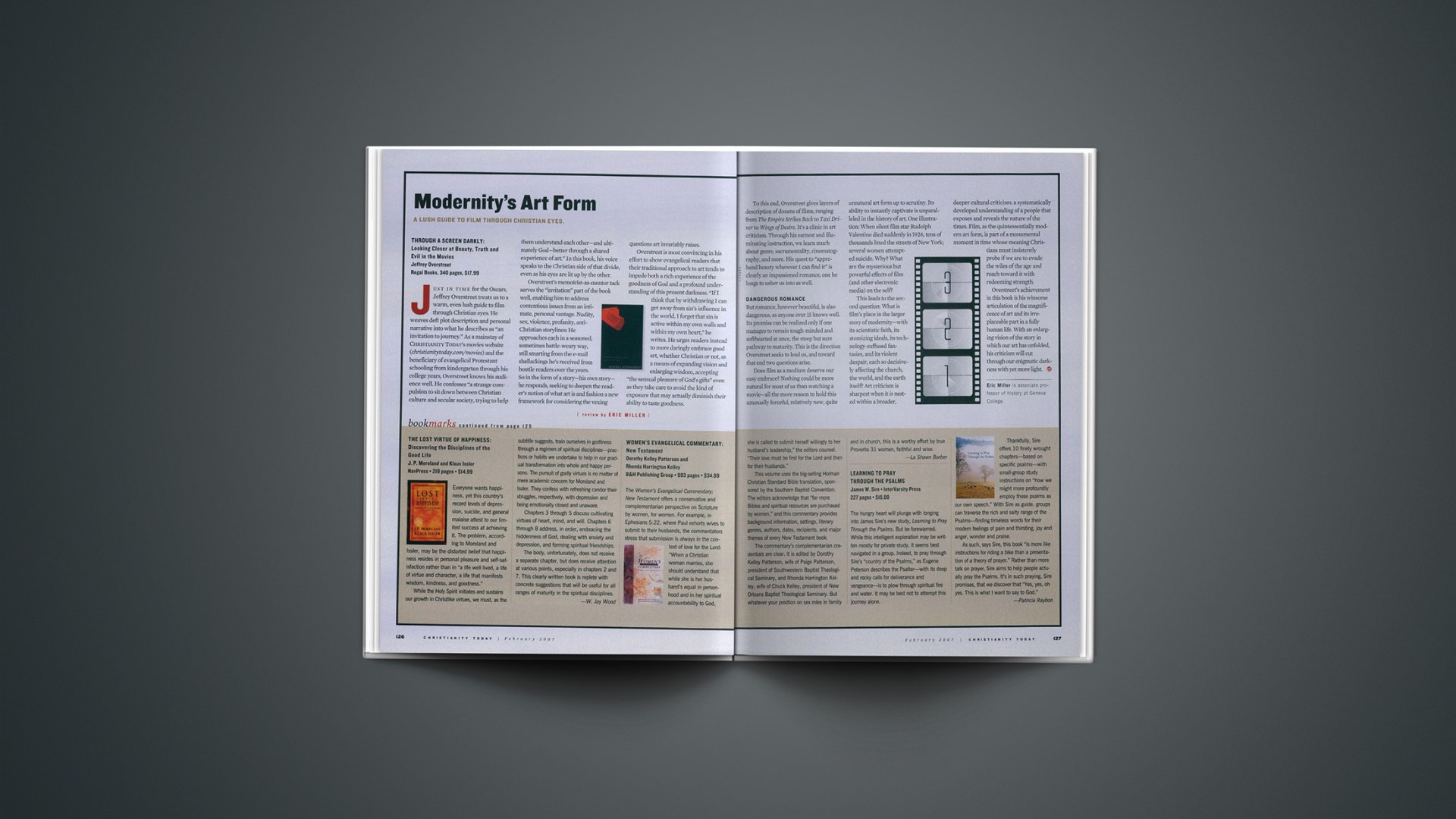Everyone wants happiness, yet this country’s record levels of depression, suicide, and general malaise attest to our limited success at achieving it. The problem, according to Moreland and Issler, may be the distorted belief that happiness resides in personal pleasure and self-satisfaction rather than in “a life well lived, a life of virtue and character, a life that manifests wisdom, kindness, and goodness.”
While the Holy Spirit initiates and sustains our growth in Christlike virtues, we must, as the subtitle suggests, train ourselves in godliness through a regimen of spiritual disciplines—practices or habits we undertake to help in our gradual transformation into whole and happy persons. The pursuit of godly virtues is no matter of mere academic concern for Moreland and Issler. They confess with refreshing candor their struggles, respectively, with depression and being emotionally closed and unaware.
Chapters 3 through 5 discuss cultivating virtues of heart, mind, and will. Chapters 6 through 8 address, in order, embracing the hiddenness of God, dealing with anxiety and depression, and forming spiritual friendships.
The body, unfortunately, does not receive a separate chapter, but does receive attention at various points, especially in chapters 2 and 7. This clearly written book is replete with concrete suggestions that will be useful for all ranges of maturity in the spiritual disciplines.
Copyright © 2007 Christianity Today. Click for reprint information.
Related Elsewhere:
The Lost Virtue of Happiness is available from ChristianBook.com and other retailers.
‘The History—and Theology—of Happiness’ and ‘Straitened and Narrowed,’ both from Books & Culture, discuss the virtue of happiness.
Christianity Today articles by and about J.P. Moreland include a brief Books & Culturereview of Three Views on Creation and Evolution and:
Jesus from East to West | Ravi Zacharias defends Christianity using the narrative of his life.(J. P. Moreland, August 1, 2006)
Masters of Philosophy | How Biola University is making inroads in the larger philosophical world (June 1, 2003)










